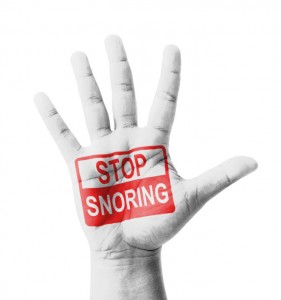Often times snoring is seen as an annoying, embarrassing habit, but there are innumerable reasons to take snoring seriously. People whose snoring can be contributed to sleep apnea have a 40% greater chance of dying earlier than their peers. Here are the health conditions linked to both snoring and sleep apnea that you may not have known about:
Stroke: The louder you snore, the greater your risk is in the long-term for having stroke. One study found that the intensity of snoring was related to the narrowing of arteries in the neck due to fatty deposits called plaque.
Heart disease: People with sleep apnea are twice as likely to have both nonfatal and fatal heart attacks. Treatment of sleep apnea with continuous positive airway pressure (CPAP) reduces your heart disease risk to that of people without sleep apnea.
Arrhythmias: Long term snoring can lead to developing an irregular heart rhythm, or arrhythmia. The increased risk of having episodes of atrial fibrillation can be reduced by getting your sleep apnea treated.
Injury: Sleep deprivation caused by snoring or sleep apnea greatly increases the danger of you and others as you try to go about your daily routine. Driving is a main concern, as some studies state that driving while drowsy is worse than driving intoxicated.
Mental health issues: Sleep apnea can make you cranky and even depressed, all due to the lack of quality sleep. One study found that the more daytime sleepiness people reported, the greater chances of them also reporting depression or anxiety issues.
Headache: There is a connection between morning headaches and sleep disorders such as sleep apnea and insomnia. Not surprisingly, people who have frequent morning headaches report having a lower quality of life.
Nocturia: This is a condition of having to frequently make trips to the bathroom at night. There is a link between bladder control and sleep apnea, and a stronger one in men over 55 who have both sleep apnea and benign prostate enlargement.
Fetal complications: Snoring, especially during the last trimester of pregnancy increases the risk of fetal complications. Mothers-to-be who snore should talk to their doctor as soon as possible.
Excess weight: About half of people who are overweight have sleep apnea, due to the extra fat around the neck area. The good news is that weight loss is a proven method of reducing snoring and sleep apnea.
Taking snoring seriously will benefit you in the long run, boosting your health as you sleep. High-quality sleep is known to produce feelings of joy, make you more productive and keep your weight down. If you are having trouble sleeping or you snore, don’t hesitate speaking with a licensed physician!



Weight is definetly a contributing factor to snoring. I know this by experience.
You’re absolutely right Teresa, thankfully better understanding these risks can help to lead to a more rested life. Thank you for sharing with us!